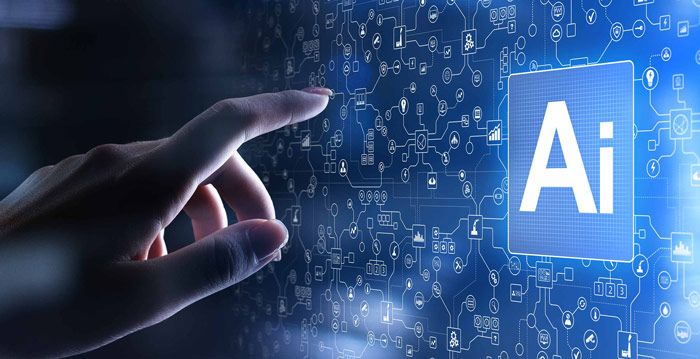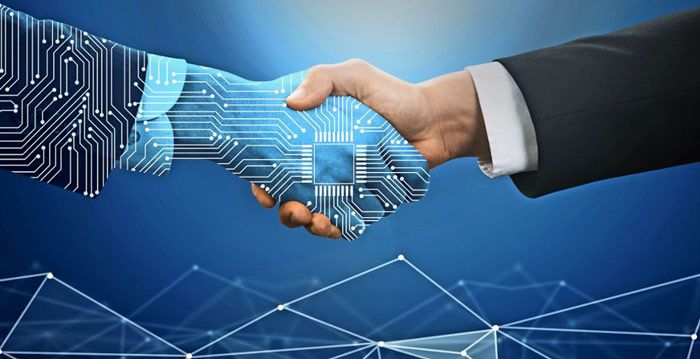Artificial Intelligence Practice Group
Artificial intelligence has become one of the fastest growing categories of computer-implemented inventions which are described and claimed in U.S. patent applications, and which are being enforced in the U.S. federal courts and at the U.S. International Trade Commission. Artificial intelligence is being integrated into devices and systems that affect every aspect of our daily lives. The development of self-driving cars, facial recognition, and intelligent voice assistants immediately come to mind. Artificial intelligence inventions allow us to accomplish tasks faster and more accurately, using less computer processing resources and less data, making them in many cases more reliable and economical when compared to conventional computer applications or systems. The pace of innovation in this field of technology is staggering and will continue to accelerate.
NSIP Law is internationally recognized for its expertise in understanding and protecting all aspects of artificial intelligence inventions. NSIP Law regularly works with major international corporations, research institutes and universities to protect and enforce the intellectual property rights which attach to their AI inventions. Given the pace of innovation in this exciting new field, NSIP Law’s greatest strength is the ability of its professionals to continually learn new technologies quickly in order to keep up with the rapid pace of innovation, and to apply their knowledge to effectively and efficiently protect their clients’ intellectual property rights. Our appreciation for our client’s AI technologies leads us to a deeper understanding of its innovative nature, as well as its technical operation.
Whether it be neural networks, machine learning, deep learning, robotics, predictive analytics, or an entirely new AI technique or application, our experienced patent attorneys understand how to describe its technical functions and operation, and claim its innovative qualities as your intellectual property. Our patent attorneys regularly work with AI technologies in the following fields:
-
Speech recognition and natural language translation.
-
Intelligent agency (think Siri, Echo or Cortana).
-
Image and object recognition.
-
Facial recognition.
-
Biometric and cyber security.
-
Battery state modeling.
-
Novel training techniques for neural networks.
-
Innovative AI architectures.
-
“Sparsifying” or “lightening” the required operations or calculations performed by a neural network.
-
Neural Processing Units (NPUs).

Our patent attorneys also work to continually remain up-to-date on the latest decisions of the U.S. Court of Appeals for the Federal Circuit, the U.S. District Courts and the Patent Trial and Appeal Board (PTAB) of the U.S. Patent and Trademark Office (USPTO) in order to maintain a full understanding of the types of artificial intelligence inventions that may be eligible for patenting under the U.S. Supreme Court’s decision in Alice v. CLS Bank. They are therefore able to focus on the most effective ways in which to describe and claim such artificial intelligence inventions in the patent application in order to enhance its patent eligibility, as well as avoid or overcome rejections of the patent claims by the patent examiners at the USPTO.
Our experienced patent and trademark attorneys collectively have decades of experience in assisting clients with protecting every aspect of their Artificial Intelligence-based inventions. In particular, we have distinguished ourselves by providing a comprehensive solution to the protection of this important area of intellectual property, including the following demonstrated capabilities:
-
Being thought leaders in the development of the law and policies that will be applied by the Courts and the USPTO regarding the protection of Artificial Intelligence inventions as intellectual property. For instance, on November 8, 2019, NSIP Law submitted detailed written responses to important questions presented by the USPTO regarding how U.S. Patent Law should apply to Artificial Intelligence-based inventions, and whether new laws or modifications of the existing laws were required. A copy of NSIP Law’s responses may be found here.
-
Working with clients to put in place policies and procedures which identify and document Artificial Intelligence-based inventions that may be eligible for intellectual property protection.
-
Counseling clients regarding whether and what aspects of their Artificial Intelligence-based inventions may be eligible for utility patent protection.
-
Working with clients to prepare the specification and claims for Artificial Intelligence-based utility patent applications, with reference to the most recent Court and PTAB decisions, in order to maximize the likelihood that the invention will be found patent eligible under the Alice v. CLS Bank decision.
-
Applying their extensive technical understanding of Artificial Intelligence-based inventions to work with Patent Examiners at the USPTO in order to resolve rejections of the patent claims that are based on the description of the AI invention in the specification, or the claiming of the invention in view of the prior art that is of record in the case. Such efforts often involve educating the Examiner regarding the technology, how it functions as an AI operation, and why the prior art would not apply.
-
Our Attorneys have also undertaken extensive research which provides them with a unique understanding of how the U.S. Federal Courts and the U.S. International Trade Commission have approached litigation involving the interpretation, infringement and validity of AI-based patents, including the types of evidence that would be necessary to present in order to establish or disprove a case for patent infringement, as well as best practices for presenting that evidence in an effective manner.
-
Our Design Patent and Trademark Group assists our clients with preparing and prosecuting design patent applications which claim the ornamental visual features of the static or animated graphical user interfaces and interactive user experiences that may be associated with their AI inventions, as well as the ornamental designs of the products which embody such inventions. Our Design Patent and Trademark Group has been consistently ranked among the top practice groups of its kind in the United States. In particular, the dedicated professionals within this group have been pioneers in expanding the types of computer-based designs that will be accepted for patenting by the USPTO.
-
Our Design Patent and Trademark Group also assists clients with the registration, policing and enforcement of the trademark rights for the brand names and design logos that are associated with their AI inventions and the products which embody them.
Please contact our Managing Partner, Charles Y. Park, at Charles@nsiplaw.com in order to discuss how NSIP Law may assist you with your Artificial Intelligence-based inventions.
